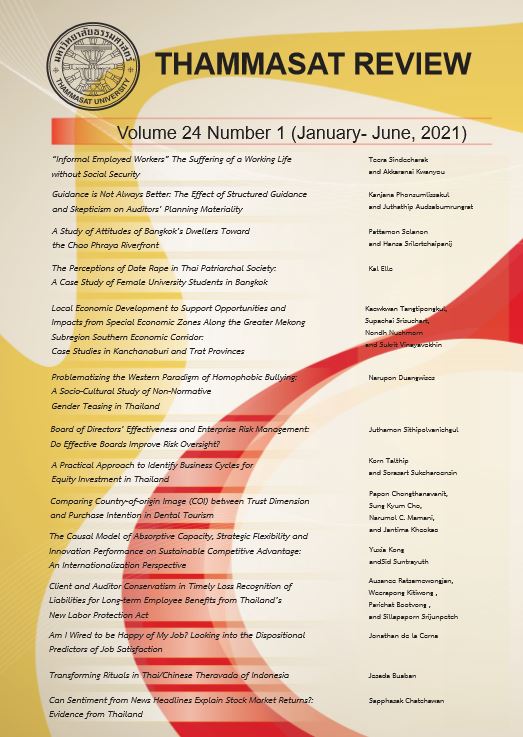Board of Directors’ Effectiveness and Enterprise Risk Management: Do Effective Boards Improve Risk Oversight?
Keywords:
Risk Management, Board Characteristics, Corporate Governance, Risk OversightAbstract
This study explores the efficiency of both the board of directors and audit committee in providing risk oversight through Enterprise Risk Management (ERM) implementation. ERM is a business strategy that assists the board of directors in handling the risk oversight within the enterprise. ERM implementation and risk management committee effectiveness combine as factors that affect the effective risk oversight efforts to ensure the key risks facing a company are well managed and ultimately enhance shareholder values. The study analyzed secondary data from 444 listed companies from the Stock Exchange of Thailand (SET) from 2015 to 2017. The results show that both the board of directors’ effectiveness and the audit committee’s effectiveness are significantly related to the effectiveness of risk oversight. Firm size is correlated with risk oversight, while the Big 4 auditors are not significantly related to effective risk oversight. These results show there is a linkage between governance quality and risk management quality. This study suggests various board characteristics and audit committee characteristics such as size, independence, experience, and frequency of meetings are related to the effectiveness of monitoring corporate risk. Hence, the research findings of corporate governance and risk management and may be of interest to regulatory policymakers.
Downloads
Published
How to Cite
Issue
Section
License
The opinions and ideas expressed in all submissions published in Thammasat Review are solely that of the author(s) and do not necessarily reflect that of the editors or the editorial board.
The copyright of all articles including all written content and illustrations belong to Thammasat Review. Any individuals or organisation wishing to publish, reproduce and distribute a particular manuscript must seek permission from the journal first.








